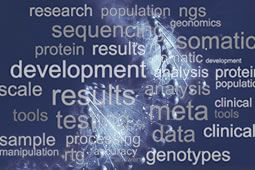Full suite of powerful NGS analysis tools
RTG Core combines all our specialized product offerings to deliver an end-to-end solution for a complete range of applications including variant detection for singletons, families, large pedigrees and populations, cancer, structural variant and CNV analysis, and microbial and metagenomic analysis.

Key Features
- Products that scale from singleton to large cohort cases
- Accurate sample composition and pathogen detection
- Streamlined workflows
- Results that are easy to understand
- Orders-of-magnitude faster time to result
RTG Core contains all the functionality of our entire range of products in a single package, for customers with a wide range of analysis needs. RTG Core supports a variety of research and medical genomics applications, such as:
Medical Genomic Research — Compare sequence variants and structural variation between normal and disease genomes, or over a disease progression in the same individual to identity causal loci.
Personalized Medicine — Establish reliable, high-throughput processing pipelines that analyze individual or multiple human genomes. Fully utilize pedigree information for families or larger cohorts for more accurate variant discovery, including automatic identification of de novo variants. Use RTG software for detection of sequence variants (snp and indel calling), as well as structural variation (coverage depth, and copy number variation).
Model Organisms and Basic Research — Utilize RTG mapping and variant detection for focused research applications such as metagenomic species identification and frequency, community analysis, and metabolic pathway analysis. Map microbial communities to generate alignments of both DNA and protein sequence data.
Plant Genomics — Enable investigations of new crop species and variant detection in genetically diverse strains by leveraging RTGs highly sensitive sequence search capabilities for strain and cross-species mapping applications. Flexible sensitivity tuning controls allow investigators to accommodate very high error rates associated with unique combinations of sequencing system error, genome-specific mutation, and aggressive cross-species comparisons.